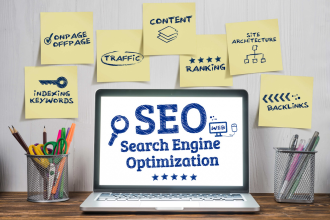All the cloud computing companies provide virtual storage for corporate data, support collaborative work, and ensure security. Still, there is no common answer as to who’s the best one to develop a universal solution for any request. Every service can be beneficial for different business goals, sizes, and other reasons. The main challenge is to compare cloud providers and evaluate a trustworthy one to fulfill your order better than anyone else.
Key criteria to pick up the right cloud provider
The market is crowded with companies willing to assist your digital journey. But if you find it hard to determine which one to entrust your cloud transformation, Avenga consulting service can help in your decision-making and migration support. But first, learn some criteria to choose a reliable partner:
- Costs. Consider how much you will pay for your plan. Are there any beginner billing types like per minute/hour, gigabyte, or a number of customers?
- Standards. Check for ISO-27018 and ISO-27001 ensuring a provider protects personal data and minimizes risks. Also consider there are HIPAA protocols for medical businesses, GDPR for European customers, etc.
- Reliability. Learn how data will be stored and if a provider ensures disaster recovery, backups, and authentication.
- Governance. As a cloud partner will have access to your data, you should clearly understand the privacy policy.
- Features. Define what functionality you may already need for boosting business growth and which one you’ll be able to implement after scaling.
- Outages and performance. Like any other business, clouds can experience downtimes too. The question lies in how they impact your company.
Top cloud providers for 2023
Industry leaders are AWS, GCP, and Microsoft Azure, while Alibaba, IBM, Oracle, and Tencent are utilized for special niche requirements. Let’s briefly talk about what distinguishes these companies from others.
AWS has the biggest IaaS and PaaS market share (31%) and is popular among large corporations. It provides services to customers from 245 countries. Amazon provider allows clients to test new products for free and is the first company to follow the latest technological trends.
Azure, despite its high prices, has numerous client databases. Those who use other MS products (there are around 600 of them) benefit from this partnership more than others.
Google Cloud offers around 100 services and is accessible in 200 countries. The main advantages of GCP for users are their open-sourced products.
Alibaba is a big IaaS and PaaS provider in the Asia region. It is accessible in 69 regions worldwide and has cheap subscription plans. One of the cons for Alibaba is its limited adoption worldwide but the company continues to widen its international presence.
Oracle customers can consider multi-cloud adoption because the company partners with Microsoft Azure. Users can run the full scope of apps in both environments with high performance and without a need to make changes in IT architecture.
IBM positions itself as a hybrid cloud and focuses on AI technologies implementations. It is available in 6 multi-zones, where clients can enjoy 20 digital products for free and test 11 more in demo trials. The organization provides 24/7 without any charges.
Tencent, the main Alibaba rival, mostly operates in China. The company offers a fully supported virtual game ecosystem and is widely used for video broadcasting.
Summary
Choosing the right cloud provider is a challenge and requires deep analyses and understanding of what service will handle your business objectives most efficiently at budget costs. Flexibility, security efforts, performance, technologies, certification, and standards are hard factors to make your decision. Think long-term and select a cloud partner which can satisfy your current and growing needs.















